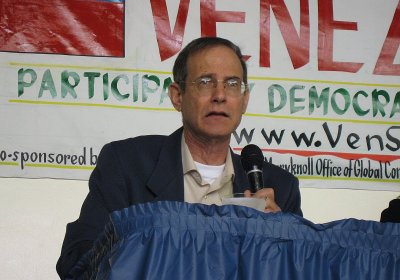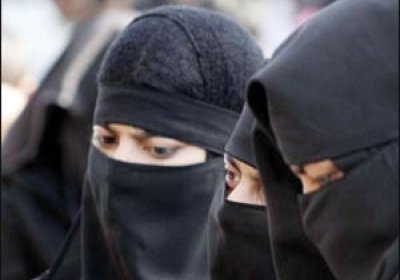On September 26, protesters from climate change activist group Rising Tide shut down the world’s largest coal port at Newcastle. Green Left Weekly’s Zane Alcorn interviewed Rising Tide member Annika Dean.
* * *
What happened at the protest?
855
More than 10 million workers staged a general strike in Spain on September 29 in response to vicious government attacks on their rights and pensions.
The huge mobilisation, organised by the Confederacion Sindical de Comisiones Obreras (CCOO) and Sindicato Union General de Trabajadores (UGT) labour unions, produced a 75% turnout of members, sending a strong message of opposition to the austerity measures.
UGT secretary for organisation and communication Jose Javier Cubillo said that in some sectors of the economy, such as steel and energy, support for the strike was close to 100%.
About 6000 Queensland health workers walked off the job from October 1 across the state demanding better wages and conditions.
"The Queensland Public Sector Union [QPSU] said the Government was unfairly targeting its own workers to cut costs to make up for the nurses' payroll debacle”, the September 30 Courier-Mail said.
The workers are demanding an increase of 4.5%, 4% and 4% over three years, with allowances and extra leave protected. The government has refused to increase its offer of 2.5% a year over three years.
We have just three months left to raise $135,228 if we are to make our 2010 fighting fund target of $300,000.
This may seem like an impossible task but it isn't. Our supporters have raised $164,772 this year. We know we have the support out there to raise the rest.
Of course, these amounts are just spare change to the corporate fat cats who were partying at the Forbes Global CEO Conference in Sydney last week, but Green Left Weekly readers and supporters have had to work hard to raise that amount for the fighting fund.
On September 28, a British Guardian reporter who interviewed me by phone published an article on the September 26 Venezuelan National Assembly elections titled “Opposition Gains Loosen Chavez’s Grip on Power.”
According to the article, I said the electoral results “suggested the government should try to modify its radical discourse and accommodate the opposition, as long as it accepted the government’s legitimacy”.
Efforts to pass laws banning full veils, burqa or chador, in some European countries — particularly France — have put the issue firmly on the agenda in many other Western countries.
Amnesty International’s Demand Dignity and Eora College art exhibition opened at the Boomalli Aboriginal Arts Gallery on September 22 to a crowd of 50 people. The exhibition was based on the theme of the UN Declaration on the Rights of Indigenous Peoples. The artworks were produced by talented students from the Eora TAFE College.
The Demand Dignity campaign aims to eradicate poverty by making human rights law. As part of the campaign, Amnesty International has criticised Australia’s NT intervention policy, which was launched by the Coalition government of John Howard in 2007.
Venezuela’s September 26 National Assembly elections gave an interesting insight into the state of class struggle in a country sharply polarised by the revolutionary changes led by the government of President Hugo Chavez.
The significance lies in the vote occurring after 11 years of the Chavez-led Bolivarian revolution, which has resulted in big improvements in the living standards of the poor majority.
On October 8, the Maritime Union of Australia (MUA), Queensland branch of the Electrical Trades Union and the Australian Manufacturing Workers Union will sign a “social compact” with the North Queensland Lands Council (NQLC).
The compact will mark a new stage in collaboration between trade unions and Indigenous organisations, especially in those regions targeted in the mining and resources boom.
Britain is said to be approaching its Berlusconi Moment. That is to say, if Rupert Murdoch wins control of Sky, he will command half Britain’s television and newspaper market and threaten what is known as public service broadcasting.
Although the alarm is ringing, it is unlikely that any government will stop him while his court is packed with politicians of all parties.
The problem with this and other Murdoch scares is that, while one cannot doubt their gravity, they deflect from an unrecognised and more insidious threat to honest information.
More deaths
Deaths in custody in Australia continue and are also not limited to prison and police custodial jurisdictions. There were 2043 Australian deaths in custody from 1980 to 2007; 72 deaths in custody per year from 1980 to 2000; 75 deaths per year from 2000 to 2007. Eighteen percent are Aboriginal. We have one of the world's worst deaths in custody records.
A “people's assembly for refugees” met in front of Parliament House on September 28 to call on the government to introduce humane policies and stop using refugees as political footballs.
More than 160 people from Victoria, the ACT and NSW were joined by Greens parliamentarians Sarah Hanson-Young and Adam Bandt, and independent MP Andrew Wilkie.
The rally was called by the Refugee Advocacy Network, a Melbourne-based coalition of refugee activist, advocacy and support groups. It was endorsed by 48 groups from across Australia.
- Previous page
- Page 3
- Next page










